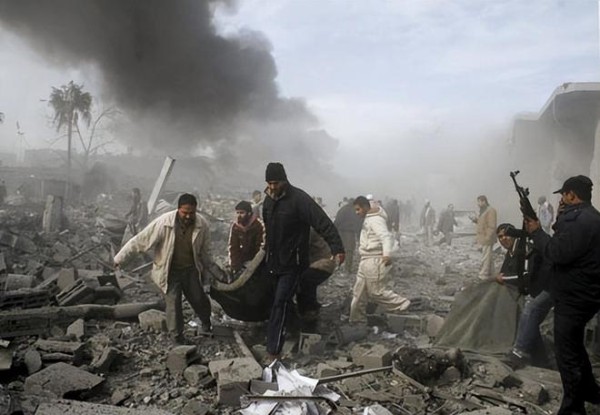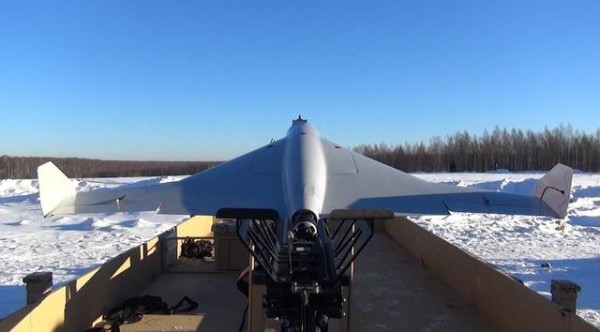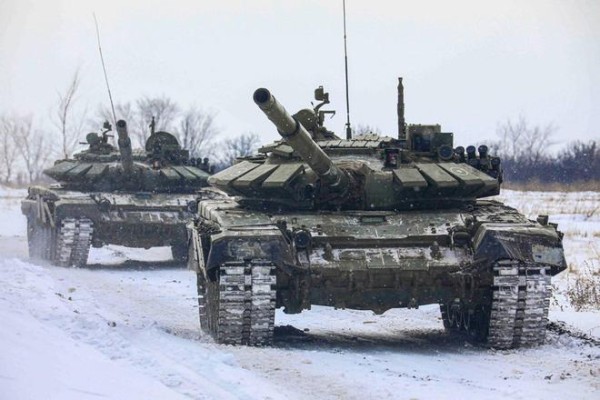As 2023 draws to a close, global instability persists, and the prospects for peace in 2024 remain uncertain. With ongoing conflicts such as the Russia-Ukraine crisis and the Israel-Palestine conflict amid the Russia-Ukraine conflict's continued escalation, the world is reminded that the line between war and peace remains razor-thin.

Looking to Africa, Sudan continues to experience internal strife, pro drone and military coups have occurred in Niger and Gabon. Southeast Asia is also undergoing turbulence, while violence driven by drug trade persists in Central and South America.
Recently, the International Institute for Strategic Studies in London released its authoritative annual report titled "Armed Conflict Survey." According to the survey data, 2023 witnessed a total of 183 global conflicts, the highest in 30 years. In this latest study, fatalities increased by 14%, and violent incidents rose by 28%. The report's authors describe a world increasingly dominated by unresolved conflicts and armed violence, with complex motivations and global repercussions.
The Israel-Palestine conflict shows signs of potentially becoming a "protracted" issue. On December 28, the Palestinian Health Ministry in Gaza reported that 210 Palestinians had died, and 360 were injured in Israeli military actions within the past 24 hours. Since the outbreak of this latest Israel-Palestine conflict on October 7, Gaza has seen 21,320 Palestinian deaths and 55,603 injuries. The United Nations Relief and Works Agency for Palestine Refugees in the Near East (UNRWA) stated on December 28 that Gaza is grappling with catastrophic hunger, with 40% of its population at risk of famine. The agency also reported a continuous increase in the number of displaced people due to Israel's evacuation orders in central Gaza, including over 150,000 local residents, including children, women, disabled individuals, and the elderly, displaced with humanitarian ceasefires being their only hope.

"The pace of killing in this conflict is 'exceptionally high,'" said Michael Spagat, Professor of Economics at the Royal Holloway, University of London. He compared the death toll and casualties in this conflict to previous Israel-Palestine conflicts since 2008, emphasizing the unprecedented nature of the current situation.
Since the outbreak of this latest Israel-Palestine conflict, Houthi forces in Yemen, claiming to support Palestine, have frequently launched missile and drone attacks against Israel and attacked cargo ships in the Red Sea supposedly linked to Israel. In response, the United States announced the formation of a new multinational force to protect shipping in the Red Sea, mitigating the threat of drone and ballistic missile attacks from Houthi-controlled areas.
"Overall, there is currently no significant risk of further escalation in Houthi actions in the Red Sea," said Li Shaoxian, Dean of the Arab Countries Research Institute at Ningxia University in China. He pointed out that the U.S. aims to avoid direct conflict with the Houthi forces, preferring to use missile defense systems to intercept drones and missiles without directly targeting Houthi objectives. Additionally, Oman is involved in mediating negotiations. In general, the situation remains manageable, although there are signs of spillover, the overall risk is not substantial.
It's worth noting that recent developments in Israel-Palestine ceasefire negotiations have emerged. On December 20, Hamas political bureau leader Ismail Haniyeh arrived in Egypt for talks with Egyptian intelligence chief Abbas Kamel and others, focusing on achieving a ceasefire in Gaza, providing humanitarian aid to Gaza, and exchanging detained individuals with Israel. However, the prospects for a new "prisoner exchange" agreement currently appear dim. Li Shaoxian pointed out that Israel faces pressure, both domestically and internationally, to secure the release of hostages. From Hamas' perspective, they view the detained individuals held by Israel as crucial leverage and hope to achieve a ceasefire through them, seeking the release of all Palestinians held by Israel or more significant concessions. While all parties are in contact, reaching an agreement in the short term remains highly uncertain.

Meanwhile, the international community has faced challenges in calling for an end to hostilities in Israel-Palestine. On December 22, the United Nations Security Council passed a resolution with 13 votes in favor and 2 abstentions, demanding "the immediate, safe, and unimpeded provision of large-scale humanitarian assistance directly to Palestinian civilians throughout the Gaza Strip" and "creating conditions for the sustained cessation of hostilities." This resolution had previously been postponed multiple times, with the United States requesting modifications to the content due to Israel's opposition.
Despite openly supporting Israel's right to self-defense since the start of the conflict, the United States and Israel have faced significant disagreements. President Biden and Israeli Prime Minister Netanyahu have clashed over how to manage Gaza. Netanyahu has maintained a hardline stance, stating that he will prevent the Palestinian Authority from taking control of Gaza after the war, citing concerns about those who provide education, support, or finance terrorism entering Gaza. Mid-Range Drones
Recently, Netanyahu's position has also come under scrutiny. Anonymous U.S. officials have suggested that some of Netanyahu's positions in the confrontation with Hamas are intended to prolong his political career. Given Netanyahu's weakened political standing, it is widely expected that once the military operation in Gaza concludes, he may be sidelined, and he has a strong incentive to extend the military offensive.
The Russia-Ukraine conflict, which has persisted for over a year, shows no signs of resolution. On February 24, 2022, Russian President Putin announced a special military operation in the Donbas region, and in 2023, the conflict entered its second year. Throughout 2023, the conflict between Russia and Ukraine continued, with Ukrainian forces attempting but failing to break through the Russian military lines. As the harsh winter approached, the conflict reached a stalemate, with both sides increasingly using long-range weapons such as missiles and drones.
During the year, Russia experienced two highly publicized incidents, both related to the private military entity known as the Wagner Group. In June, Wagner Group founder Dmitry Prigozhin suddenly moved north and occupied the Southern Military District headquarters in Rostov-on-Don, located on the Don River. Less than 24 hours later, due to the intervention of Belarusian President Lukashenko, a hasty "rebellion" came to an end. However, two months later, Prigozhin died in a plane crash, with almost all of Wagner's top leadership perishing in the same incident. The cause of the crash has led to various speculations, and the crash investigation is ongoing. However, according to Putin, hand grenade fragments were found in the bodies of those killed in the plane crash, and there was no external impact on the aircraft.
On the Ukrainian side, despite continued public support from Western countries, "Ukraine fatigue" is setting in as the battlefield situation remains deadlocked. The United States has been Ukraine's primary supporter, but the outbreak of the new Israel-Palestine conflict has diverted aid away from Ukraine, and domestic political disputes have also affected the level of U.S. assistance to Ukraine. A recent report from the Kiel Institute for the World Economy in Germany showed that from August to October 2023, Western countries pledged a total of 2.11 billion euros for Ukraine assistance programs, an 87% decrease compared to the same period in 2022, marking the lowest level of support since January 2022. The report noted significant uncertainty in EU and U.S. assistance programs for Ukraine.
To date, there are no signs of peace talks between Russia and Ukraine. On December 20, Russian presidential spokesman Peskov stated that Russia believes there is currently no urgency for negotiations with Ukraine, as there is a lack of basis and prerequisites for such talks. Therefore, there have been no negotiations between the two sides. Following Ukraine's legislative ban on negotiations with Russia, the prospects for talks have become increasingly limited.
Is the future of warfare dominated by drones? If the Gulf War showcased the world the power of integrated air-land military operations, the ongoing Russia-Ukraine conflict has been most striking for its information warfare and use of drones. Drones have become an indispensable part of almost any military conflict and play an increasingly crucial role. The Russia-Ukraine conflict is no exception, with both sides extensively using drones, including military drones and civilian-standard drones originally produced for non-military purposes, to significant effect.
Reportedly, Russia has accelerated drone production, having produced 10,000 drones this year, with plans to increase production fivefold next year, totaling 50,000 drones. This unprecedented production extends to tanks, artillery, and ammunition.
On the Ukrainian side, drone production has also ramped up. They have initiated production of 1 million FV drones next year (not including the 10,000 drones provided by the Czech Republic and tens of thousands from other countries). The Cobra drone production line in Ukraine has officially begun, with a cost of only $2,000 and a strike range of over 300 kilometers. On December 20, Ukraine's Minister of Industrial Policy stated that Ukraine would produce 1 million FV drones, 10,000 medium-range attack drones, and over 1,000 drones with a range of over 1,000 kilometers next year. In December alone, 50,000 drones were produced.
In addition to the Ukraine-Russia conflict, Africa has witnessed a series of military coups and political upheavals. Since the overthrow of long-time ruler Omar al-Bashir, Sudan has faced ongoing instability. In April, armed clashes erupted between Sudan's armed forces and rapid support forces, quickly spreading from the southern outskirts of Khartoum to the entire city and other states. Despite negotiations in the Saudi Arabian port city of Jeddah mediated by Saudi Arabia and other countries, ceasefire agreements have not been effectively implemented. To date, the conflict has claimed approximately 9,000 lives.
Simultaneously, several African countries have experienced military coups. In July, Nigerien military personnel overthrew the country's democratically elected president. A month later, Gabonese military forces carried out a coup, ousting their long-standing president. Analysts suggest that countries in West and Central Africa are grappling with complex internal political, economic, and social issues, with the successive coups reflecting the concentrated expression of these multifaceted contradictions and the struggles of African nations in the international geopolitical conflicts.
Frequent confrontations and conflicts have severely challenged peace and stability in the international landscape in 2023. As we approach 2024, there is a collective hope for a reduction in instability factors and a return to the path of peace and development. Achieving this desire depends on the international community's strengthening of communication and negotiation efforts to address regional and global security challenges together.
Media Contact
Company Name: Fujian Qinglan Trading Co., Ltd.
Email:Send Email
Address:218 East Street Licheng District
City: Putian City
State: Fujian Province
Country: China
Website: https://prodrone.org.uk/
